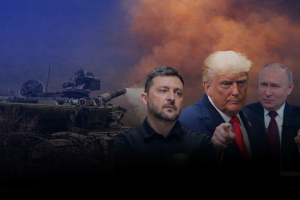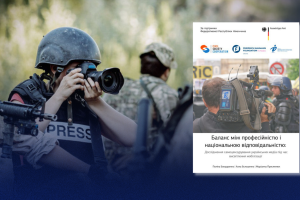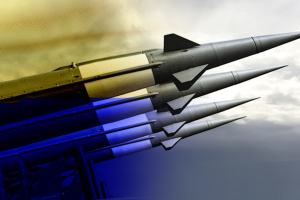The nationwide survey was conducted by the Ilko Kucheriv Democratic Initiatives Foundation in cooperation with the Razumkov Center's sociological service on August 8 -15, 2024.
The face-to-face survey was conducted in the Vinnytsia, Volyn, Dnipropetrovsk, Donetsk, Zhytomyr, Zakarpattia, Zaporizhzhia, Ivano-Frankivsk, Kyiv, Kirovohrad, Lviv, Mykolaiv, Odesa, Poltava, Rivne, Sumy, Ternopil, Kharkiv, Kherson, Khmelnytsky, Cherkasy, Chernihiv, Chernivtsi oblasts, and in the city of Kyiv. In the Zaporizhzhia, Donetsk, Mykolaiv, Kharkiv, and Kherson oblasts, it was conducted only in the territories under the control of Ukrainian military forces, where no active armed conflict is taking place.
The survey was conducted using stratified multistage sampling with random selection at the first sampling stages and using a quota method of respondent selection at the final stage (when respondents were selected according to gender and age quotas). The sample structure represents the demographic pattern of the adult population in the areas where the survey was conducted as of the beginning of 2022 (by age, gender, type of urban/rural classification).
2,017 respondents over the age of 18 were surveyed. The theoretical sampling error does not exceed 2.3%. At the same time, additional systematic sample deviations may be caused by the consequences of the Russian military's destruction, most notably the forced displacement of millions of citizens.
- Around a third of Ukrainians (32%) think that the start of negotiations with Russia about war ending is possible only after the liberation of all temporarily occupied territories of Ukraine. Such an approach is supported by the relative majority of citizens in every age group, but among the youth (18-29 years) percentage is somewhat lower (28%) than the national average and amongst respondents 50-59 years – to the contrary, higher (36%).
- As for other conditions for negotiations with Russia, then Vox populi is divided almost evenly between those, who’re tolerating negotiations exclusively to save prisoners and POWs (19%) those, who thinks that peace negotiations are possible (20%), and those who thinks that to strike deal with Russia is impossible in principle (18%).
- There are some regional differences in approach to negotiations with Russia. Readiness to talk without any previous special preconditions are mostly supported in the South (36%) and East (27%), while in the West and in the Centre this percentage is at 15%. At the same time, more people in the West (21%) and less in the South (13%) are convinced that negotiating with Russia not only now, but in general is a futile idea.
- The vast majority of Ukrainians continue to demonstrate unreadiness to execute Russian’s demands to end the war. Only 9% are ready to recognize the occupied territories as part of Russia even for the sake of ending the war (in August 2023 – less than 5%) and 81% consider it unacceptable (in August 2023 – 90%), regardless of respondent’s age. It is unacceptable for the majority in all macroregions: in the West and Centre – 84%, in the South – 76%, in the East – 72%.
- In a hypothetical situation, when a peace accord would not demand official recognition of the occupied territories as part of Russia, but guaranteed long lasting peace and protection from Russian threat, then the divide between those, who would support such accord and would be against it, would be slightly less so. Hypothetically speaking, it could be supported by 25,5% of the population, but the absolute majority would still be against it – 61%.
- Readiness to abandon future NATO membership expressed 18,5% of Ukrainians – same result as in August 2023, but majority of the citizens still consider it as unacceptable (67%, in August 2023 – 74%). However, distinct regional differences still exist. The biggest share of those who reckon refusal of NATO membership as an inadmissible demand live in the West (79%), while the lowest number – in the East (52%) but in the East there is the biggest portion of undecided Ukrainians (16%).
- Demand to abandon future EU membership is also inappropriate for the majority of Ukrainians (71%), only 17% would agree with this. This position united respondents from all age groups, but the most opposed to ending the EU bid is youth – 80% of people, aged 18-29. Such Russian demand will be non-starter for all macroregions, but as well as with NATO membership, numerical indicators will be lower from West (82%), Centre and South (71% and 72%, respectively) to East (57%).
- China in a role of a mediator during possible negotiations between Ukraine and Russia doesn't inspire confidence in 62% of Ukrainians, instead, 22% would be ready to hand to Beijing such a mediation.
- All Russians are responsible for the aggression against Ukraine – 76% of citizens are thinking this way, 20% disagree. There’s certainty in society around this issue, because only 4% of Ukrainians don’t have a clear position about this topic. Moreover, regardless of age, respondents categorically agree with the collective responsibility of the Russians. Additionally, 64,5% agree that Russian population is showing government of their country to continue war against Ukraine and this unites, too, young generation of Ukrainians (66% of youth 18-29 years) as well as older (60% of people, aged 60 or older).
- After 2,5 years of full-scale war, 54% of Ukrainians think, that in a case of even longer war with Russia, Ukraine will be able to withstand, but 28% disagree and 18% don’t have a clear answer to this question.
- Security guarantees from other countries will be able to shield Ukraine from possible Russian aggression in the future – 62% of Ukrainians are sure of that. Moreover, in a regional distribution, dwellers in the South (71%) rely on such guarantees the most, while undecided are the majority in the East (21%).
- Regarding the longevity of the Western support, thoughts in Ukrainian society are divided strictly evenly. So, 40% think that the West will not support Ukraine in an event of longer war, but 39,5% disagree with them.
- Ukrainian society lacks unambiguity in a question, how precisely political and military leaders of Ukraine should act if western arms support will diminish or stop. Slightly more than a quarter (35%) believe that in this case Ukrainian government should start negotiations with Russia to end the war, 23,5% think that in such a situation they should try to freeze the conflict, but stop short from promising concessions to Russia, and 21% think that Ukrainian leadership should continue the war no matter what, even in circumstances of reduced or stopped Western aid. It’s important that every fifth respondent in Ukraine is undecided about how Ukraine must act without western military packages.
- Huge losses that Ukraine have already suffered are perceived by the relative majority (45%) rather as a reason not to agree on a peace that will not correspond with Ukraine's needs and demands. But for 32% these losses and a perspective to lose even more people, on the contrary, is an argument to start talks and end the war.
- The biggest support for the position that exactly because of the big losses Ukraine should not agree on demands that are unacceptable, is demonstrated in the Central macroregion (49%) and the Western one (47%). Among Eastern respondents we have almost equal shares of those, for whom losses is a reason to start talks (38%), and for those for whom these losses – reason not to agree on disadvantageous peace.
- At this stage of war, the majority of Ukrainians (64%) believe that Russian aggression was inevitable after Ukraine restored its independence. At the same time, those who think that war could be avoided are in minority (18%). Also, the majority of Ukrainians (59,5%) believe that Russia will again attack Ukraine in the future, regardless of how the current war will end. This position is supported by 68% people in the West, 60% – in the Centre, 55,5% – in the East and 45% in the South.








